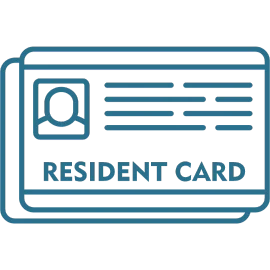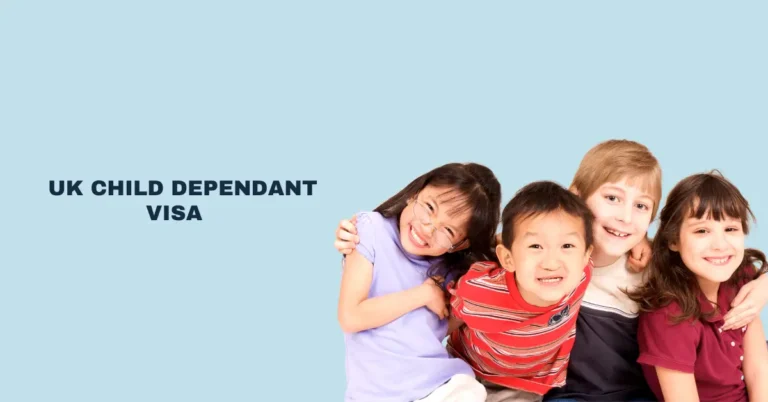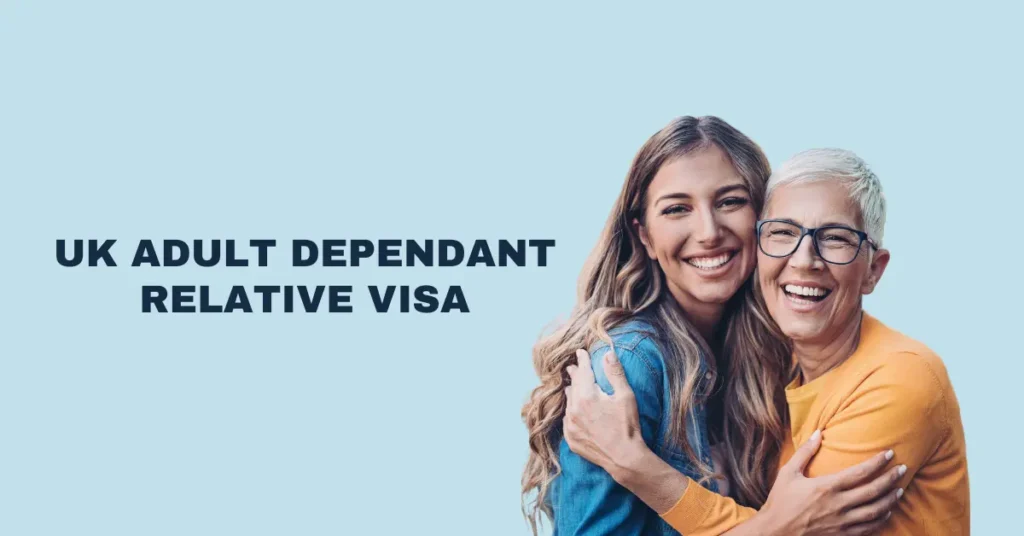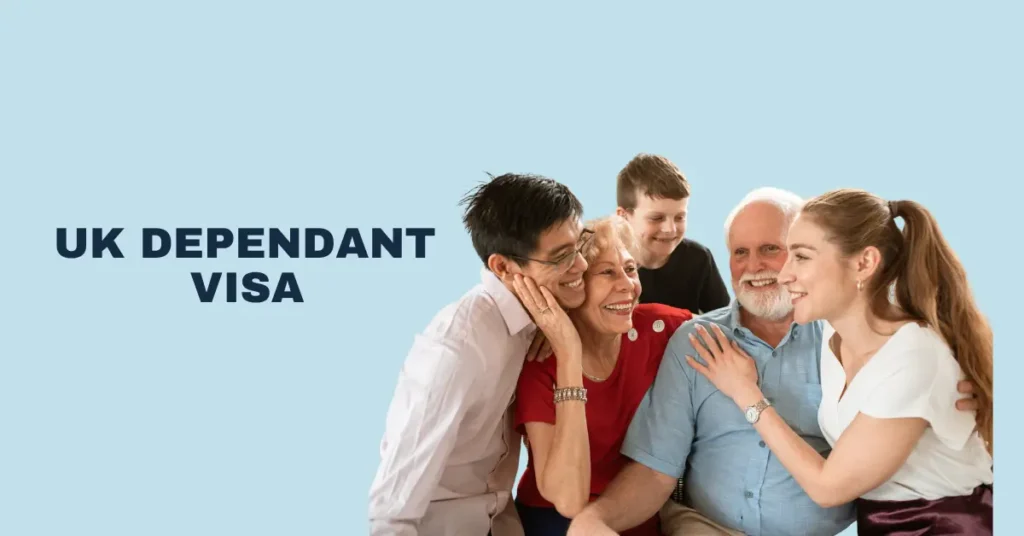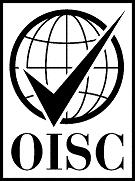When contemplating bringing your child to the UK, it’s essential to take into account their entitlements under various child dependant visa options. To meet the eligibility criteria, you must demonstrate their dependence on you and verify that you possess the means required to sustain them during their stay in the UK.
Who is eligible to apply for a child dependant visa?
A Child Dependant Visa is designed to facilitate the reunion of an overseas child with a parent already residing in the UK. Typically, the Home Office mandates the presence of both parents in the UK along with the child. However, if only one parent is physically present in the UK, the sponsoring parent located in the UK must substantiate that they bear sole parental responsibility for the child or children.
In scenarios where one parent is in the UK while the other is overseas, and the sponsoring parent (in the UK) is unable to establish sole responsibility for the child, they must furnish compelling evidence of a significant family reason or other considerations that make the exclusion of the child undesirable.
Within the framework of the UK’s immigration system, child dependant visa applications are categorized based on the status of the parents:
- At least one parent is settled or applying for settlement in the UK: This category pertains to situations where a parent is either already settled in the UK or in the process of applying for settlement.
- At least one parent has or is applying for a partner visa: In cases where a parent is holding or seeking a partner visa, the child dependant visa application aligns with this category.
- At least one parent has Limited Leave to Remain: This category encompasses scenarios where at least one parent holds Limited Leave to Remain in the UK, indicating temporary residence.
At least one parent is settled or applying for settlement in the UK
Should a child’s parent be a settled individual, possessing Indefinite Leave to Remain (ILR), the child has the opportunity to apply for inclusion in their parent’s UK residence. Upon approval, the child, too, will be granted ILR. Achieving parental settlement in the UK is a multifaceted process, typically involving a residency period of a stipulated duration (commonly 5 years) while holding a work visa or another specific visa type.
At least one parent has or is applying for a partner visa
In scenarios where a child’s parent has either secured or is currently in the application process for a partner visa under the family visa scheme, the child is eligible to accompany their parent to the UK. The reliance of child dependents on the partner visa applicant is a crucial factor, and their application can be submitted concurrently with their parent’s or independently at a later date. Following a qualifying residence period in the UK with their parent (typically 5 years), the child gains eligibility to apply for Indefinite Leave to Remain.
At least one parent has Limited Leave to Remain
Various long-term visa categories extend the privilege for holders to bring their dependents with them or join them while residing in the UK. These categories encompass:
- Skilled Worker Visa:
- This visa is designed for individuals with specific skills and job offers from UK employers.
- Applicants must demonstrate proficiency in English and score points based on factors like job offer, skill level, and salary.
- Health and Care Worker Visa:
- Tailored for professionals in the health and care sectors.
- Streamlined application process for quicker entry to address the UK’s healthcare needs.
- Specific requirements include a job offer from a recognized employer and English language proficiency.
- Senior or Specialist Worker Visa (Global Business Mobility):
- Aimed at high-ranking or specialized employees of international companies expanding their business to the UK.
- Requires a certificate of sponsorship from the sponsoring company.
- Minister of Religion Visa (T2):
- For individuals intending to work in the UK as a religious minister or missionary.
- Requires sponsorship from a recognized religious institution.
- International Sportsperson Visa:
- Tailored for elite athletes and coaches intending to work in the UK.
- Requires endorsement from the relevant sports governing body.
- Innovator Visa:
- Geared towards experienced entrepreneurs with innovative business ideas.
- Requires endorsement from an approved endorsing body.
- Start-up Visa:
- For aspiring entrepreneurs looking to establish a business in the UK.
- Requires endorsement from an approved endorsing body and a viable business plan.
- Global Talent Visa:
- Attracts individuals with exceptional talent or promise in specific fields like science, arts, humanities, engineering, or digital technology.
- Applicants need an endorsement from a recognized endorsing body.
- Ancestry Visa:
- Available for Commonwealth citizens with a grandparent born in the UK.
- Allows work and study in the UK for a specified period.
- British National (Overseas) Visa:
- Created for British National (Overseas) citizens from Hong Kong.
- Provides the opportunity to live, work, and study in the UK, leading to settlement.
- Full-time Student Visas:
- Designed for individuals pursuing full-time courses in the UK.
- Requires acceptance into a recognized educational institution and proof of financial capability.
- Each visa category has its own set of specific requirements, eligibility criteria, and application processes. It’s crucial for applicants to thoroughly understand the details of the particular visa they are applying for to ensure a smooth and successful application process.
Dependant children typically receive leave to enter or remain in alignment with the duration granted to their parents. They have the option to apply for renewal in tandem with their parent’s extension applications. Upon completing 5 years in the UK, the child becomes eligible to apply for ILR. However, to qualify for permanent residence, they must continue residing with the sponsoring parent.
Can step-children be included in a Child Dependant Visa?
While step-children can indeed be included in a child dependant visa UK application, the process may necessitate additional evidence to meet the stringent requirements set by the Home Office. The Home Office, in fulfilling its duty of care, aims to avoid inadvertent family unit separation. In the context of step-families, presenting compelling evidence of legal responsibility for the child’s care and welfare becomes imperative. This includes showcasing financial support capabilities, day-to-day care responsibilities (including schooling), and obtaining permission from the other biological parent for the child to reside in the UK.
Any uncertainties surrounding legal custody and responsibility could lead to a potential refusal or a request for further clarification from the Home Office. Hence, seeking comprehensive advice and assistance from adept immigration solicitors in the UK is strongly recommended for individuals applying for a dependent visa for a step-child. These seasoned solicitors play a pivotal role in mitigating potential reasons for refusal and ensuring the submission of all necessary and compelling evidence.
For a detailed discussion and consultation, feel free to contact our specialist child immigration lawyers at +44 (0) 1293 522 275 or at [email protected]
UK Child Dependant Visa Requirements
The prerequisites for a UK child dependant visa hinge on the applicant’s specific circumstances. The overarching requirements include:
- The child must be under 18, unmarried, and not in a civil partnership.
- The child should not lead an independent life.
- Fulfil the financial requirements: Present evidence of ample funds to sustain your child’s life in the UK.
- Satisfy the proof of relationship criteria: UK-based parents must hold full legal responsibility for the child.
- Fulfill the suitable accommodation prerequisites: UK-based parents must have adequate rooms for the child and the family.
- Children are not obligated to demonstrate proficiency in the English language.
What Constitutes a Dependant Child in the UK?
A dependant child must be below 18 years of age, unmarried (or not in a civil partnership), and not leading an independent life. If the child is over 18 years old, it might still be possible for them to apply if they previously obtained permission to stay in the UK while under 18 and are not living an independent life.
Proof of Relationship Requirements
In cases where the child is not residing in the UK with both parents, the parent with whom they will reside must possess “parental responsibility” for them. The Home Office requires evidence demonstrating that the UK-based parent holds full legal responsibility for the child to grant a child dependent visa.
Suitable Accommodation Requirements
The Home Office also verifies that arrangements for the child’s care and accommodation in the United Kingdom adhere to relevant legislation and regulations. This necessitates the UK sponsor having exclusive use of the property and ensuring sufficient rooms for the family’s residence.
Documents Needed for Child Dependant Visa Application in the UK
When applying for a child dependant visa in the UK, the Home Office will require a comprehensive set of documents. Here’s a detailed breakdown:
- Passport of the Main Visa Holder (or the person settled in the UK):
- Clear and current copy of the passport, ensuring all pages, including visa stamps, are visible.
- Evidence of Immigration Status of the UK-Based Sponsor:
- Valid proof such as a letter from the Home Office, vignette in the passport, or Biometric Residence Permit (BRP).
- Child’s Passport:
- A valid and up-to-date passport for the child.
- Child’s Birth Certificate:
- Original or certified copy of the child’s birth certificate.
- Evidence of Relationship with the Child:
- Supplementary materials like photos, messages, emails, or correspondence demonstrating the genuine relationship between the child and the sponsor.
- Proof of Sole Parental Responsibility (if applicable):
- Legal documents affirming sole parental responsibility if only one parent is involved.
- Evidence of Sufficient Support Funds:
- Detailed financial records, including recent payslips, bank statements, or a P60, demonstrating the ability to financially support the child.
- Evidence of Suitable Accommodation:
- Tenancy or mortgage documents proving exclusive occupancy of a suitable residence for the child and family.
- Parents’ Date of Birth and Nationality (if applying from outside the UK):
- Clear information regarding the parents’ date of birth and nationality.
- Tuberculosis Test Results (if applicable):
- Results of a tuberculosis test, if the applicant is from a country where this test is mandatory.
- Certified Translation of Non-English or Welsh Documents:
- Translations by a certified translator for any document not originally in English or Welsh.
Ensuring the completeness and clarity of these documents is crucial for a successful child dependent visa application. If you have any questions or need assistance, feel free to reach out to us.
How to Apply for a UK Dependant Visa for a Child: Step-by-Step Guide
Securing a UK dependant visa for your child involves a series of essential steps. Here’s a detailed breakdown to guide you through the process:
- Complete the Appropriate Application Form:
- Identify and fill out the required application form based on your child’s circumstances. For instance, if applying under the family visa route to join parents in the UK, use the Appendix FM online form1. The application can be submitted concurrently with the parent’s or separately, and it’s crucial to include a reference for the main visa holder to link the applications.
- Payment of Fees:
- Pay the visa application fee, Biometric Residence Permit fee, and immigration healthcare surcharge. Details on fees can be found below.
- Upload Necessary Documents:
- Submit all required documents as specified by the Home Office. Refer to the detailed document checklist for the comprehensive list.
- Book an Appointment:
- Schedule an appointment at a local visa application centre or a UKVCAS service centre if you are already in the UK.
- Biometric Appointment:
- Attend the biometric appointment to have fingerprints scanned and a photo taken. This step is crucial for identity verification.
- Wait for a Decision:
- After completing the necessary steps, patiently await a decision on the visa application. The processing time may vary, so stay informed on the expected timeframe.
Fees Breakdown:
- Visa Application Fee: Check the specific fee associated with the type of visa and applicant.
- Biometric Residence Permit Fee: Pay the fee for the physical permit that serves as official proof of the visa holder’s right to be in the UK.
- Immigration Healthcare Surcharge: Contribute to the National Health Service (NHS) fund, a mandatory requirement for accessing healthcare services in the UK.
Ensuring meticulous adherence to each step and providing accurate documentation significantly enhances the likelihood of a successful UK dependent visa application for your child. For personalized guidance and support, feel free to reach out to us.
Child Dependant Visa UK Costs
The fees associated with a dependent child visa in the UK are as follows:
Application Fee:
- Applying Outside the UK:
- Dependant Child (Family Visa Route): £1,538
- Dependant Child (Dependent of Long-term Visa Holder – e.g., Work Visa):
- Up to 3 years: £625 per person
- More than 3 years: £1,235 per person
- Applying Inside the UK:
- Dependant Child (Family Visa Route): £1,048
- Dependant Child (Dependent of Long-term Visa Holder – e.g., Work Visa):
- Up to 3 years: £719 per person
- More than 3 years: £1,423 per person
- Dependant Child of a Settled Person: £2,404
Additional Fees:
- Biometric Residence Permit (BRP) Fee: £19.20
- Immigration Healthcare Charge: £470 per child per year (provides access to the UK’s National Health Service).
Processing Time for UK Dependant Visa for a Child:
The processing time for a UK child dependant Visa varies based on the chosen route:
- Dependant Child Visa UK (Family Visa Route):
- Applying Outside the UK: Decision within 12 weeks.
- Applying Inside the UK: Decision within 8 weeks.
- Dependant Child Visa UK (Dependent of Long-term Visa Holder – e.g., Work Visa):
- Decision typically made within 3 weeks.
- Dependant Child Visa UK (Child of a Settled Person):
- Decision typically made within 6 weeks.
If needed, the super-priority processing service is available for a fee of £800, providing a decision by the end of the next working day.
Child Dependant Visa to Settlement (ILR):
A child with a dependant visa can usually settle (gain Indefinite Leave to Remain – ILR) after residing in the UK for 5 years in most cases. When the parent/s achieve ILR, the child can apply for ILR concurrently.
For professional assistance with your child’s leave to remain extension or ILR application, contact our immigration lawyers for a free telephone consultation at +44 (0) 1293 522 275 or via email at [email protected].





























